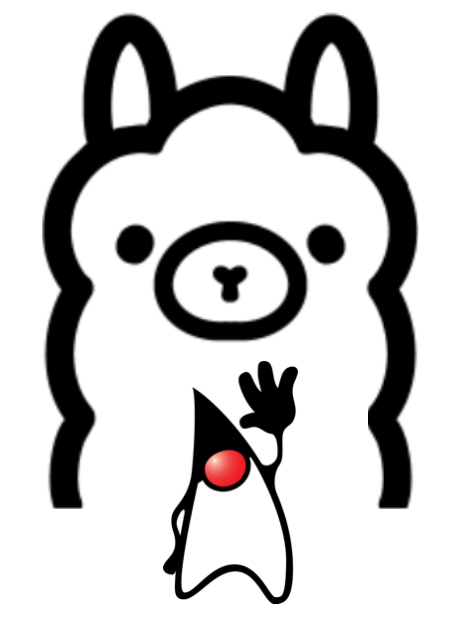fd93036d08f56554792fef2d6b809792d90615cb
Signed-off-by: koujalgi.amith@gmail.com <koujalgi.amith@gmail.com>
Table of Contents
How does it work?
flowchart LR
o4j[Ollama4j]
o[Ollama Server]
o4j -->|Communicates with| o;
m[Models]
subgraph Ollama Deployment
direction TB
o -->|Manages| m
end
Requirements
Installation
Check the releases here and update the dependency version according to your requirements.
For Maven
- In your Maven project, add this dependency:
<dependency>
<groupId>io.github.amithkoujalgi</groupId>
<artifactId>ollama4j</artifactId>
<version>1.0.74</version>
</dependency>
- Add repository to your project's pom.xml:
<repositories>
<repository>
<id>github</id>
<name>GitHub Apache Maven Packages</name>
<url>https://maven.pkg.github.com/amithkoujalgi/ollama4j</url>
<releases>
<enabled>true</enabled>
</releases>
<snapshots>
<enabled>true</enabled>
</snapshots>
</repository>
</repositories>
- Add GitHub server to settings.xml. (Usually available at ~/.m2/settings.xml)
<settings xmlns="http://maven.apache.org/SETTINGS/1.0.0"
xmlns:xsi="http://www.w3.org/2001/XMLSchema-instance"
xsi:schemaLocation="http://maven.apache.org/SETTINGS/1.0.0
http://maven.apache.org/xsd/settings-1.0.0.xsd">
<servers>
<server>
<id>github</id>
<username>YOUR-USERNAME</username>
<password>YOUR-TOKEN</password>
</server>
</servers>
</settings>
For Gradle
In your Gradle project, add the dependency using the Kotlin DSL or the Groovy DSL:
dependencies {
val ollama4jVersion = "1.0.74"
implementation("io.github.amithkoujalgi:ollama4j:$ollama4jVersion")
}
dependencies {
implementation("io.github.amithkoujalgi:ollama4j:1.0.74")
}
API Spec
Find the full API specifications on the website.
Development
Build:
make build
Run unit tests:
make ut
Run integration tests:
make it
Releases
Newer artifacts are published via GitHub Actions CI workflow when a new release is created from main branch.
Who's using Ollama4j?
Datafaker: a library to generate fake dataVaadin Web UI: UI-Tester for Interactions with Ollama via ollama4jollama-translator: Minecraft 1.20.6 spigot plugin allows to easily break language barriers by using ollama on the server to translate all messages into a specfic target language.
Traction
Areas of improvement
- Use Java-naming conventions for attributes in the request/response models instead of the
snake-case conventions. (
possibly with Jackson-mapper's
@JsonProperty) - Fix deprecated HTTP client code
- Setup logging
- Use lombok
- Update request body creation with Java objects
- Async APIs for images
- Support for function calling with models like Mistral
- generate in sync mode
- generate in async mode
- Add custom headers to requests
- Add additional params for
askAPIs such as:options: additional model parameters for the Modelfile such astemperature- Supported params.system: system prompt to (overrides what is defined in the Modelfile)template: the full prompt or prompt template (overrides what is defined in the Modelfile)context: the context parameter returned from a previous request, which can be used to keep a short conversational memorystream: Add support for streaming responses from the model
- Add test cases
- Handle exceptions better (maybe throw more appropriate exceptions)
Get Involved
Contributions are most welcome! Whether it's reporting a bug, proposing an enhancement, or helping with code - any sort of contribution is much appreciated.
References
Credits
The nomenclature and the icon have been adopted from the incredible Ollama project.
Thanks to the amazing contributors
Appreciate my work?
Description
Releases
1
First fork release
Latest
Languages
Java
99.4%
Makefile
0.6%


















